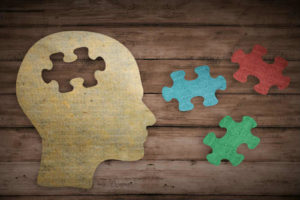











Selective memory is a person’s tendency to remember certain pieces of information while forgetting others, often leading them to forget things like everyday tasks or events. The term is often used in the punch line of jokes, like when a spouse gets upset with their partner about forgetting to take out the trash. They might indignantly say something like, “I always take out the trash,” which is not true. In reality, they had forgotten to take out the trash just a few days ago. In this case, a person is selecting the information they want to remember while forgetting the rest.

Selective memory, sometimes referred to as selective amnesia, refers to the tendency to remember certain events, people, or experiences while forgetting others. This phenomenon often involves an intentional choice to recall only what is deemed important or less painful. Factors such as emotional arousal, trauma, or a defense mechanism to cope with negative emotions can trigger selective memory.
For instance, someone might vividly remember a joyful family gathering but forget the argument that happened later that evening. This selective recall can significantly impact an individual’s quality of life, interpersonal relationships, and day-to-day functioning.
Selective memory implies a certain amount of intentionality behind it. It often involves the choice to remember only certain facts or events. The brain is powerful and can even incite the selective memory process.
At times, selective memory can be the result of a traumatic event. Someone who experienced abuse when they were young might not remember what happened in full detail. The brain helps them forget traumatic moments that would bring tremendous pain. Individuals may experience varying degrees of success in forgetting traumatic moments, depending on the severity of the trauma and their coping mechanisms.
Sometimes, selective memory is more directed by a person. If a romantic partner leaves them, they might delete photos and block their number, attempting to move forward. They may also try to forget the painful emotions felt when the relationship ended.
In these examples, selective memory can serve as a defense mechanism for the person, shielding them from emotional pain. Some memories are so painful that it can help to forget some of the details to move forward. Selective memory is not all bad, but it might not serve as a helpful long-term solution.
Age-related memory decline is very common and can result in instances of selective memory. There are some experiences in life that your brain, along with time, allows you to forget. An example would be when an old friend reminds you of something you did many years ago. Suddenly, you are thrown back into that memory, though you had forgotten about it long ago.
While our memories tend to deteriorate as we age, there are some conditions, some of which mostly impact the elderly, that can exacerbate this process. Common causes of memory loss include Parkinson’s disease, amnesia, and dementia (Mires, 2024). These are known to impact the brain and can cause selective memory.
Along with many other physical impairments caused by stress is memory loss. Over time, stress can cause the synapses in the brain to degenerate, making it difficult to process, store, and recall information. In addition, the protective coating of the brain can become weakened due to stress, which results in the killing of neurons (nerve cells in the brain), contributing to forgetfulness.
Symptoms of selective memory can vary widely depending on the individual and the underlying cause. Some common examples include:
For instance, a person may have a selective memory of a past relationship, only remembering the good times and conveniently forgetting the bad. Another example is someone who has experienced a traumatic event, such as a car accident, and forgets certain details of the event due to the emotional arousal associated with it. These examples illustrate how selective memory can serve as a coping mechanism to shield individuals from negative emotions and painful memories.

Selective memory can have a significant impact on an individual’s daily life. It can affect their relationships, work, and overall well-being. For example:
These impacts highlight the importance of addressing selective memory, especially when it interferes with daily functioning and mental health. Seeking help from a mental health professional can be crucial in managing and overcoming the challenges associated with selective memory.
There are different types of selective memory, each with its unique characteristics and causes. Understanding these types can help identify and address selective memory issues.
It’s worth noting that selective memory is not a mental health condition or disability but rather a common phenomenon influenced by various factors. However, in some cases, selective memory can be a symptom of underlying mental health conditions. If you’re concerned about your memory or overall well-being, it’s essential to seek professional help from a mental health professional. They can provide the necessary support and resources to address and manage selective memory effectively.
If your selective memory is caused by stress, a medical condition, or aging, then engaging in a healthy lifestyle that includes diet, exercise, and dietary supplements can be very helpful in reducing forgetfulness.
On the other hand, if your selective memory is your brain’s coping mechanism for avoiding negative emotions, you may want to consider speaking with a mental health professional. While it might be painful to do so, it’s healthier in the long term.
If one is a victim of abuse, they may still feel the impact of the trauma in their daily lives, even if the details of the event are forgotten. Avoiding certain memories or experiences can still leave behind complicated emotions with nowhere to go. They can encourage avoidant behaviors that will drive wedges in a person’s relationships.
While it can be appropriate and helpful in terms of protecting you, a selective memory rarely serves as a solid long-term solution. Addressing issues rather than selectively remembering information is important when moving forward in life. It will likely be difficult at the moment. However, it will provide the potential for more sustained comfort and positive change.
If you find it too painful or difficult to unpack these memories on your own, some counselors specialize in working with victims of trauma and those suffering from PTSD and can help work through the events and emotions they bring up. This is a truly healthy way to overcome negative emotions and thoughts.
Sources